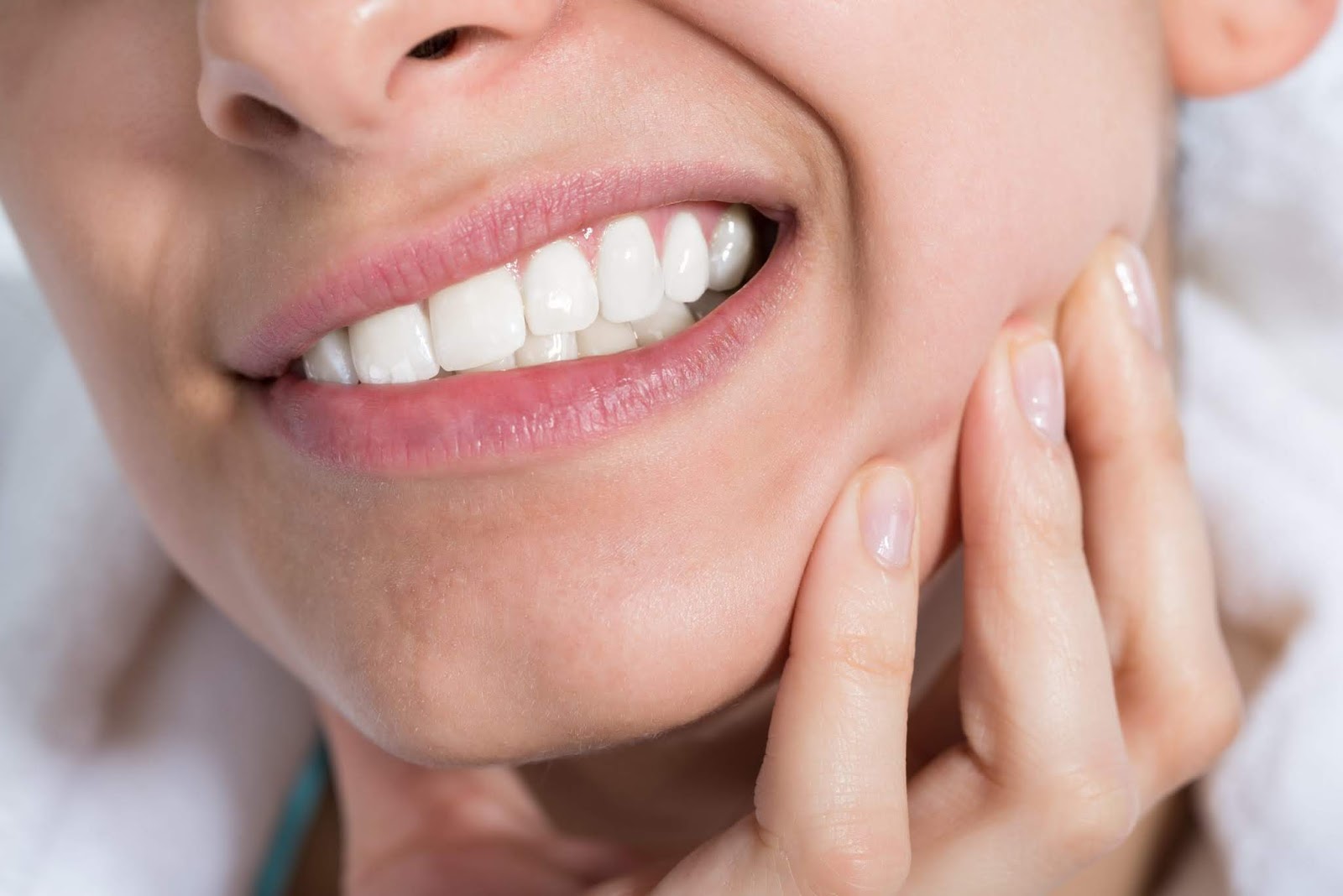There’s a reason why relaxing the jaw’s an integral part of yoga practices worldwide. Jaws are notorious for storing tension and often, unconsciously. While it helps to have reminders to relax your jaw throughout the day, what about when we’re sleeping? If you suffer from teth grinding then click here!
50-70 million Americans suffer from a sleep disorder, among which bruxism, or teeth grinding, ranks among them. While most associate sleep disorders with trouble falling or staying asleep, teeth grinding lets you sleep—but at a great cost.
Learning how to relax your jaw when sleeping is crucial for optimal wellness. Here’s how to do it.
Teeth Grinding
It’s easy to forget how a body part impacts the whole until it’s hurting. Healthy teeth are known to increase longevity. Bruxism threatens whole-body wellness by manifesting the following things.
- Pain in ear and jaw
- Buzzing in the ear
- Headaches
- Decayed, worn, or broken teeth
- Difficulty opening or closing jaw
- Facial deformities
- Sleep disturbance
Because bruxism is a habitual, nightly occurrence, the face and jaw get little recovery time before the body’s back to the same old pattern. Recurring damage from teeth grinding can result in TMJ or TMD, two kinds of musculoskeletal disorders.
Retraining the body’s a tall order, especially while you’re sleeping—but it can be done.
How to Relax Your Jaw When Sleeping
Just as dreams relate to our waking lives, how we live impacts our sleep. Symptoms are indicators of a larger issue. For lasting change to occur, it helps to get curious about the problem.
The following things can influence bruxism.
- Caffeine intake
- Co-occurring sleep disorders, like sleep apnea or chronic snoring
- Alcohol intake
- Lifestyle stressors involving work, family, home, relationships, or finances
- Psychological stressors or conditions like anxiety or depression
- Cigarette smoking
What may be repressed or suppressed in daytime often comes out at night. Truths reveal themselves; however they see fit.
Learning how to stop grinding teeth has two parts.
- Working with daily stressors
- Re-training the physical body
One won’t sustain itself without the other—consider yourself the liaison between them both. Click here to see what other people said about teeth grinding guards.
How to Stop Grinding Teeth at Night
Simply put—if you want to know how to relax your jaw when sleeping, you have to learn how to relax your jaw while you’re awake. Now’s the time to assess your relationship to relaxation.
Ask yourself the following.
- What in my life is out of balance?
- In what areas of my life am I stressed?
- How do I cope with that stress? Healthily or unhealthily?
- What does self-care mean to me? Do I prioritize it? How do I practice it?
- What am I not addressing that needs to be?
- What does my intuition say this is about?
The location of the pain is a great insight into what’s imbalanced. Bruxism is considered an orofacial disorder, bridging the face and mouth. This might beg questions around what needs to be faced or communicated.
Once you’ve identified your imbalances, consider which self-care tactics can fit into your routine and how. Finding balance in your day can help retrain your body to stay balanced at night.
Common mindfulness routines can involve:
- Yoga
- Calming tea before bed
- A bedtime routine or ritual to unwind
- Meditation
- Guided visualizations
- Journaling
- Creativity
- Pursuing a hobby
- Fostering healthy relationships
- Incorporating exercise
- Being outside
- Identifying your values and living by them
Beginning a new routine can be uncomfortable, but it’s a worthy investment in your health. Making a schedule and sticking to it can reprogram how you spend your days. The result is living more intentionally, which changes your body’s signaling patterns.
Night Guards
There’s a reason they say old habits die hard. Telling your teeth to stop moving at night won’t stop them. If you find your teeth still grind after you’ve implemented new relaxation techniques, welcome to part two of the equation.
Bruxism guards are common go-to’s for those with this condition says this dentist in Leominster MA. To complement your relaxation work, the body may still need help repatterning itself. For this reason, night guards serve as bite plates or stoppers to cushion your teeth’s tendencies.
The most successful treatments and therapies come from a combination of things. Consider your relaxation techniques coupled with a nightguard to be the perfect match for restful sleep.
Change requires commitment. Effective and long-lasting recovery requires consistency. The good news is recovery is possible, and it’s entirely up to you.
Teeth Talk
Depending on your stage in life, bruxism can be outgrown without treatment. In more severe cases, dental work and surgery may be required for structural realignment. Seeing a dentist regularly can ensure staying on top of things.
Consider bruxism guards to be physical therapy and the relaxation tactics to be mental, emotional, and spiritual therapy. Tackling bruxism in these ways gets to its root. This provides lasting wellness, even beyond dental realignment.
Mind Your Mouth
Fixing sleep disturbance is a mystery because it makes us work backward. What happened last night? Why do my teeth hurt so much?
If you’ve woken up sore, pained, and cupping your mouth, some part of you wants to communicate with you. Just as lucid dreams make it so people can control their nightlife, you can learn how to relax your jaw when sleeping.
On average, it takes 66 days to build new habits. If you’ve been grinding your teeth for years, know that you can resolve that in a couple of months. Your peaceful, non-teeth-grinding nights await you!
For more on health and wellness, check out our latest blog posts!

